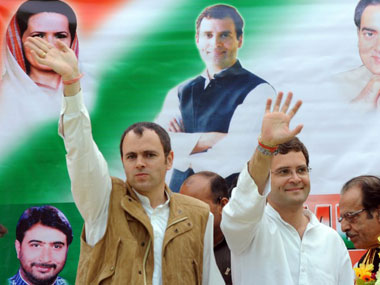United Nations, May 20: Highlighting India's long-standing history of promoting inclusive and peaceful societies, a top UN official on Tuesday voiced concern over incidents of "increased hate speech and discrimination" against minority communities in the country following the adoption of the Citizenship Amendment Act.
Under-Secretary-General and UN Special Adviser on the Prevention of Genocide Adama Dieng, however, welcomed Prime Minister Narendra Modi’s call for unity and brotherhood in the wake of the COVID19 pandemic.
Dieng said in a note to the media on Tuesday that he is "concerned over reports of increased hate speech and discrimination against minority communities in India" since the adoption of the Citizenship Amendment Act (CAA) in December 2019.
The Indian government has maintained that the CAA is an internal matter of the country and stressed that the goal is to protect the oppressed minorities of neighbouring countries.
The CAA, which was notified on January 10, grants Indian citizenship to non-Muslim minorities migrated to India from Afghanistan, Pakistan and Bangladesh till December 31, 2014, following persecution over their faith.
"While the objective of the act, to provide protection to minority communities is commendable, it is concerning that this protection is not extended to all groups, including Muslims. This is contrary to India’s obligations under international human rights law, in particular on non-discrimination,” Dieng said.
The Special Adviser recognised "India’s long standing and well recognised history of promoting inclusive and peaceful societies, with respect for equality and principles of non-discrimination.”
He also welcomed recent statements by Prime Minister Modi that the COVID-19 pandemic “does not see race, religion, colour, caste, creed, language or border before striking and that our response and conduct...should attach primacy to unity and brotherhood.”
Dieng encouraged the Government of India to "continue to abide by this guidance by ensuring that national laws and policies follow international standards related to non-discrimination and to address and counter the rise of hate speech through messages of inclusion, respect for diversity and unity.”
He further reiterated that he would continue to follow developments and expressed his readiness to support initiatives to counter and address hate speech.
The hate speech and the dehumanisation of others goes against international human rights norms and values, he added.
“In these extraordinary times brought about by the COVID-19 crisis it is more important than ever that we stand united as one humanity, demonstrating unity and solidarity rather than division and hate,” he said.
Dieng also expressed concern over reports of violence during demonstrations against CAA in some regions of India.
 New Delhi, Nov 8: Congress vice president Rahul Gandhi Thursday said he is a supporter of Jammu and Kashmir Chief Minister Omar Abdullah. "I am a supporter of Omar, absolutely. We have a government here together," Rahul Gandhi said in reply to a question whether he would campaign for Abdullah ahead of the general elections.
New Delhi, Nov 8: Congress vice president Rahul Gandhi Thursday said he is a supporter of Jammu and Kashmir Chief Minister Omar Abdullah. "I am a supporter of Omar, absolutely. We have a government here together," Rahul Gandhi said in reply to a question whether he would campaign for Abdullah ahead of the general elections.




Comments
Add new comment